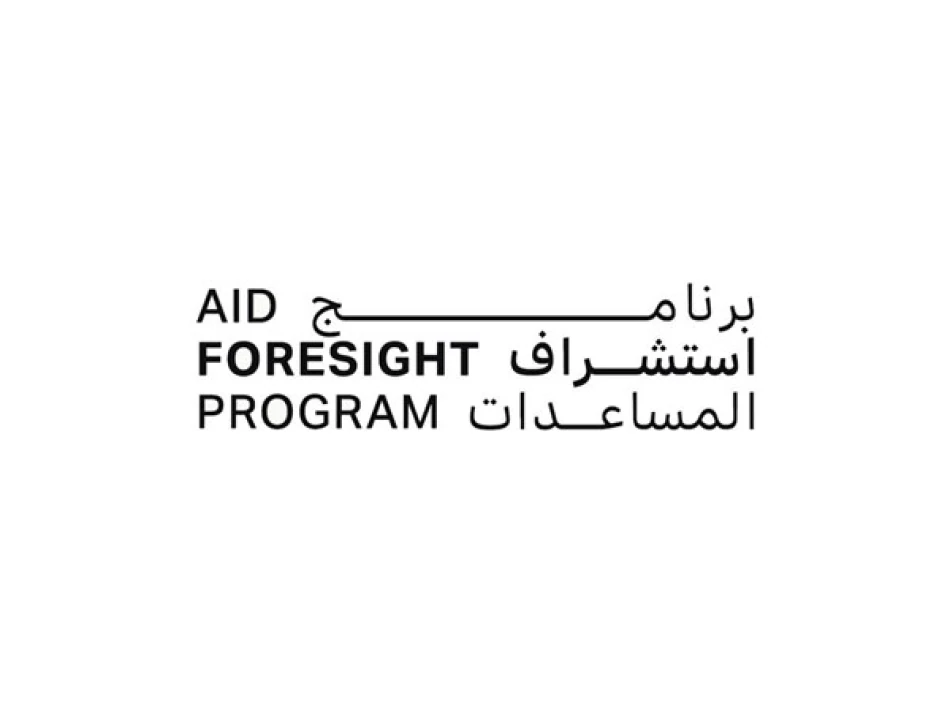
Global Humanitarian Affairs Launches 'Aid Foresight' Program to Predict and Prepare for Emerging Crises
UAE Launches Strategic Aid Reform Program to Reshape International Development Approach
The UAE is positioning itself as a more sophisticated player in global humanitarian aid through a new week-long program that brings together international experts and local institutions to reimagine how foreign assistance is delivered. The "Aid Foresight" initiative, running from September 29 to October 4, signals the Emirates' ambition to move beyond traditional charity models toward data-driven, impact-focused development strategies that could influence how middle powers approach international aid.
A Strategic Shift in Gulf Philanthropy
Launched by the International Humanitarian Affairs Council under the Presidential Office's Development Affairs Bureau, the program represents a calculated effort to professionalize the UAE's extensive aid network. The initiative targets managers and specialists from major Emirati donor institutions, including the Emirates International Aid Agency, UAE Red Crescent Authority, and Abu Dhabi Fund for Development, alongside organizations under the Zayed Humanitarian Legacy Foundation.
This move comes as Gulf states increasingly compete for soft power influence through humanitarian diplomacy. While Saudi Arabia has focused on mega-projects and direct bilateral aid, the UAE appears to be betting on institutional expertise and operational excellence as differentiators in the crowded aid landscape.
World-Class Expertise Meets Regional Ambitions
The program's speaker lineup reveals the UAE's serious intent to absorb best practices from established aid powers. Beatrice Noval, a governance consultant who has advised the World Bank and Inter-American Development Bank, will share insights on global governance and regional integration. Bart Fontaine from the Haven Foundation brings hands-on experience from Belgium's "ENABEL2030" Africa cooperation strategy and higher education development in Mozambique, Ethiopia, and Angola.
Perhaps most significantly, Hosuk Lee-Makiyama from the London School of Economics' Centre for Trade Policy will address the intersection of trade, technology, and international affairs. His regular advisory work with G7 and G20 governments on security and trade integration policies suggests the UAE is thinking beyond traditional humanitarian aid toward comprehensive economic diplomacy.
Four Pillars of Aid Transformation
The program's structure around education, capacity building, experience sharing, and strategic communication reflects modern aid effectiveness principles that have emerged from decades of development research. This framework mirrors successful approaches used by Nordic countries and Singapore, which have achieved outsized influence in international development despite their smaller size.
For the UAE, this represents a maturation from the oil boom era of checkbook diplomacy toward more nuanced engagement. The emphasis on aligning national priorities with global community needs suggests recognition that effective aid must serve both recipient welfare and donor strategic interests—a lesson learned from European and American aid experiences.
Market Implications and Regional Competition
From an investment perspective, the UAE's aid professionalization could create new opportunities in the development consulting and impact measurement sectors. As the Emirates builds more sophisticated aid delivery mechanisms, demand for specialized services in project evaluation, risk assessment, and outcome tracking will likely increase.
The timing is also strategically astute. As traditional Western donors face budget pressures and shifting domestic priorities, emerging economies are filling gaps in development financing. The UAE's move to enhance aid effectiveness could position it as a preferred partner for multilateral institutions and recipient countries seeking alternatives to Chinese Belt and Road financing or traditional Western aid models.
Beyond Charity: Building Institutional Legacy
The program's emphasis on creating "a better future for foreign aid" suggests ambitions that extend beyond immediate humanitarian relief. By investing in institutional knowledge and operational excellence, the UAE appears to be building infrastructure for sustained influence in global development—a approach that could yield diplomatic dividends for decades.
This strategic patience mirrors successful models from countries like Norway and Switzerland, which leveraged aid expertise into broader international influence. For the UAE, already a major logistics and financial hub, adding development expertise to its portfolio of capabilities could further cement its role as a bridge between East and West, developed and developing worlds.
Most Viewed News

 Layla Al Mansoori
Layla Al Mansoori






